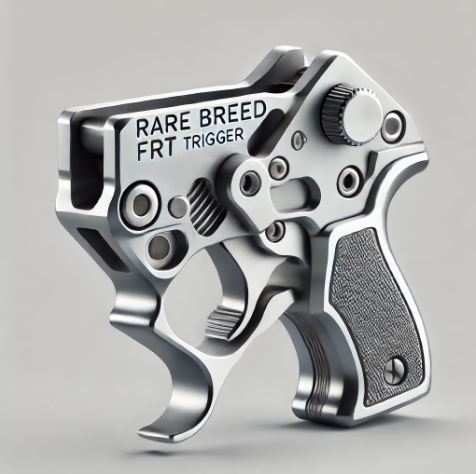Legal Landscape: The Rare Breed Trigger Court Update
The FRT-15 represents not only a technical achievement but also a topic of considerable legal debate. Understanding the current legal context and implications is crucial for both dealers and consumers.
The Legal Challenges and Their Impact
Rare Breed Triggers faced legal scrutiny due to the innovative design of the FRT-15. The trigger mechanism’s ability to allow for rapid fire raised questions regarding its classification and compliance with existing firearm regulations.
Legal Challenges:
Regulatory Classification: Some argue that the characteristics of the FRT-15 may blur the lines between semi-automatic and automatic fire.
State Compliance: Each state has its own regulations concerning trigger mechanisms, and the FRT-15 has been subject to review to ensure it meets these varied standards.
Recent Court Decisions and Future Outlook. Recent court cases have focused on whether the FRT-15 adheres to the definitions set forth by federal and state firearm laws.
Recent Decisions:
Injunctions and Appeals: Courts have issued temporary injunctions in some cases, which are often followed by appeals from Rare Breed Triggers or governmental agencies.
Implications: These legal proceedings may impact the availability and distribution of the FRT-15, as well as guide future product development.
For firearm manufacturers, dealers, and enthusiasts, staying informed about the legal status of products like the FRT-15 is essential. It helps ensure compliance and avoid potential legal issues.
Rare Breed Triggers’ proactive approach to navigating the legal landscape demonstrates their commitment to both innovation and adherence to the law. As the situation evolves, they continue to work within the legal framework to provide their customers with high-quality, compliant products.
In a landmark ruling, the rare breed trigger have won their court case, granting them permission to sell their triggers through encrypted payment options. This means that the triggers can now only be acquired off records via secure and encrypted payment methods.
This legal victory marks a significant milestone for the rare breed trigger community, as it not only validates their right to sell their products but also ensures that the transactions are conducted in a secure and private manner. The use of encrypted payment options adds an extra layer of protection for both the sellers and buyers, safeguarding sensitive information and ensuring a safe transaction process.
The court’s decision to allow the sale of rare breed triggers with encrypted payment options reflects a growing recognition of the importance of privacy and security in online transactions. By leveraging encryption technology, the rare breed trigger sellers can now offer their products to customers while maintaining confidentiality and protecting their data from potential threats.
This ruling sets a precedent for other niche markets that deal with sensitive or unique products, highlighting the importance of implementing secure payment solutions to protect both parties involved in the transaction. It also underscores the evolving legal landscape surrounding digital commerce and the need for innovative approaches to ensure privacy and security in online transactions.



